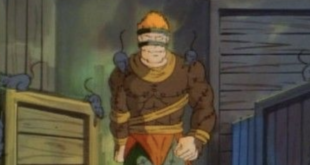Walmart in Vermont seeds are non-essential #nonessential #Covid19 #Coronavirus pic.twitter.com/uvflPraSIz
— NESSAMOMTCHEZ (@borimxgirl) April 5, 2020
You don’t know what you need to buy, so the government will tell you what you don’t need to buy, in order to make your job easier.
Local governments around the US are starting to take more draconian measures to prevent the spread of coronavirus by banning “essential” stores such as grocery chains or big-box retailers from selling “non-essential” items such as clothing and electronics.
These stores, which have been allowed to stay open during state lockdowns across the US because they are deemed as “essential” businesses by selling groceries or offering pharmacy services, for example, are now required by law in some parts of the US to remove any non-essential items from their stores or rope off areas of the store so that customers are unable to access these products.
The state of Vermont is among those clamping down on this. At the end of March, the state governor issued an executive order banning big-box stores from selling non-essential items.
“Large ‘big box’ retailers generate significant shopping traffic by virtue of their size and the variety of goods offered in a single location,” Vermont’s Agency of Commerce and Community Development Secretary Lindsay Kurrle said in a statement to the press at the time.
She added: “This volume of shopping traffic significantly increases the risk of further spread of this dangerous virus to Vermonters and the viability of Vermont’s health care system. We are directing these stores to put public health first and help us reduce the number of shoppers.”
The only way that customers can shop for these non-essential items is by using online delivery services or curbside pickup.
How long until people are forced to shop for food using online delivery services too so no one leaves their home anymore?
The logical next step, following the reason that stores selling “non-essential” items somehow increases the risk of contagion, is to also ban essential items from being sold in physical stores and just move all buying activities online.
If anything, these so-called non-essential items being available in physical stores makes it less likely that people will spread diseases by being too close together when buying essential items, as they’d provide a distraction to alleviate the concentration of people in one place.
The board of commissioners in Howard County, Indiana enforced a similar rule earlier in March, which also prevented any businesses in the area that were deemed to be “essential” from selling non-essential items.
…
There have been reports elsewhere of other counties putting similar rules into play.
The handling of this fake flu crisis makes it clear that these people running the lockdown are either absolutely incompetent, or literally malicious.
Nothing about the response to this “pandemic” makes sense and all of these experts and politicians are acting like retards.
 Daily Stormer The Most Censored Publication in History
Daily Stormer The Most Censored Publication in History



